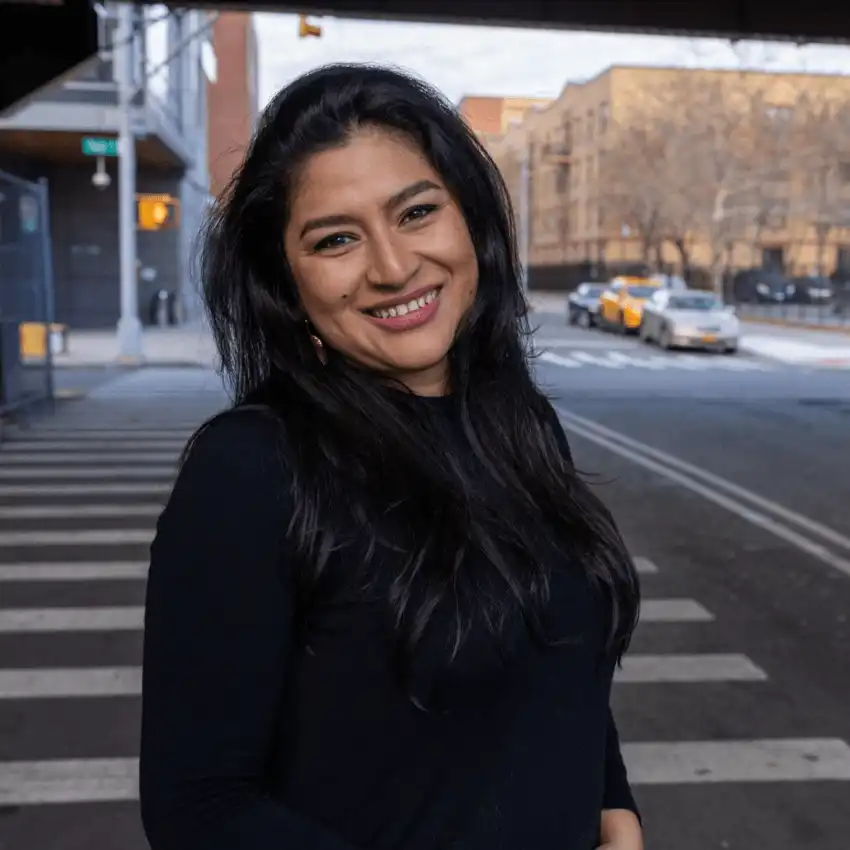Home>Sac-Nicte Yescas: A New Kind of Campaign
16.12.2021
Sac-Nicte Yescas: A New Kind of Campaign

Sac-Nicte Yescas served as Director of Field Operations for Andrew Yang’s recent bid for mayor of New York City and has worked on multiple notable campaigns at the local, state and national levels. In this interview, Yescas shares the path she followed to pursue a career in politics and explains how her experience at Sciences Po equipped her with a strong foundation for success. She also dives into the rapid development of technology, its impact on the democratic process, and what this may mean for future election cycles.
Born and raised in southern Mexico, Yescas arrived in the United States at the age of 16 and remained there through her undergraduate studies at the University of Utah. Early on, Yescas became interested in local politics and worked on a city council campaign while still in college. After graduating, she completed internships at the European Parliament, which led to her working in the office of a Member of the European Parliament before moving into non-profit advocacy work.
A commitment to immigrants’ rights and social justice has been present throughout Yescas’ entire education and career. She moved to Paris seeking a new challenge, and graduated with a masters in Economic Law from Sciences Po in 2013. Her motivation to get involved in the 2016 presidential election led her to Hillary Clinton’s campaign, before moving onto consultancy. Her next campaign role was in 2018, when she joined Alexandria Ocasio-Cortez’s campaign for Congress. After this successful campaign, she became a Project Manager with Statista, a tech company specialized in data aggregation and analysis. After rejoining the Ocasio-Cortez team in the 2020 cycle for another successful congressional run, she was recruited as Director of Field Operations for Andrew Yang’s mayoral campaign. Reflecting on the diversity and breadth of her career experiences thus far, Yescas shares, “Public service is my passion, but technology has always captured my imagination. I believe that if used correctly, technology can help strengthen democracy—so I have tried to find ways to integrate the two.”
Yescas is grateful for both the skills and relationships she developed as a student at Sciences Po. “I found the challenge I needed,” she says. “I really valued the diversity in the student body and faculty. Professors and classmates came from all over the world and I learned a lot from both. I got to study two major legal traditions in three different languages. Law school transformed the way I think and changed my approach to complex work projects throughout my career.”
Her background in law and social justice has made Yescas a valuable member of the campaign world. In reference to the complexities of the field, Yescas states,“The intensity surprised me. It is a lot of work...but it’s highly rewarding because you’re engaging communities in the democratic process, which allows them to make decisions for their own future.” Yescas explains how developing and executing strategic plans under pressure makes other professional challenges seem somehow easier. “Classes at Sciences Po were so rigorous that I remember having a similar thought back then,” she reflects.
Yescas refers to Alexandria Ocasio-Cortez’s 2020 campaign as a standout experience in her career. “She introduced new strategies. She’s a disruptor in the political world in the best sense of the word. Not just because of her policies and tenacity, but in the way she communicates directly with voters and her incredible ability to mobilize her base.” Yescas also points to the pandemic as a shift in the way political campaigns approach voter outreach. “It forced us to completely rethink the way we campaign.
Since we couldn’t doorknock, lead in-person volunteer trainings, or see our constituents face-to-face, everything had to be done virtually, which created a new and exciting organizing model,” she says.
Yescas not only welcomes the shift toward digital campaign strategy, but wants to be apart of shaping it. She is looking forward to spending more time on new technologies that can be used to harness the best aspects of democracy. She is exploring civic engagement through mobile voting technologies and leveraging blockchain as a medium for reducing wealth inequality.“I’m looking for ways to use technology meaningfully and responsibly to find solutions to systemic societal problems,” she says.
Yescas owes a debt of gratitude to her professors at Sciences Po for their role in fostering her desire to constantly learn and grow. “My professors had a lot of influence on me,” she says. “They are deep thinkers and inspiring role models. They know they are responsible for educating individuals who in many cases will be making decisions that impact entire societies, so they always inspire the very best from their students.”